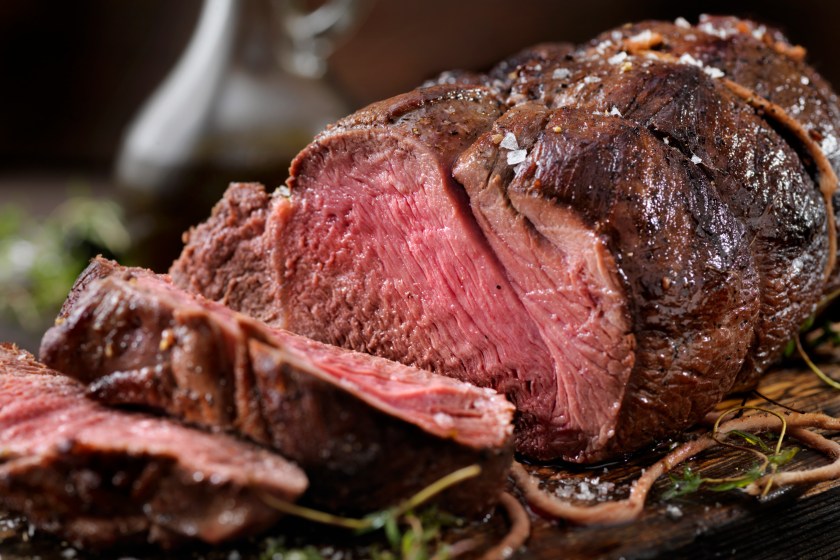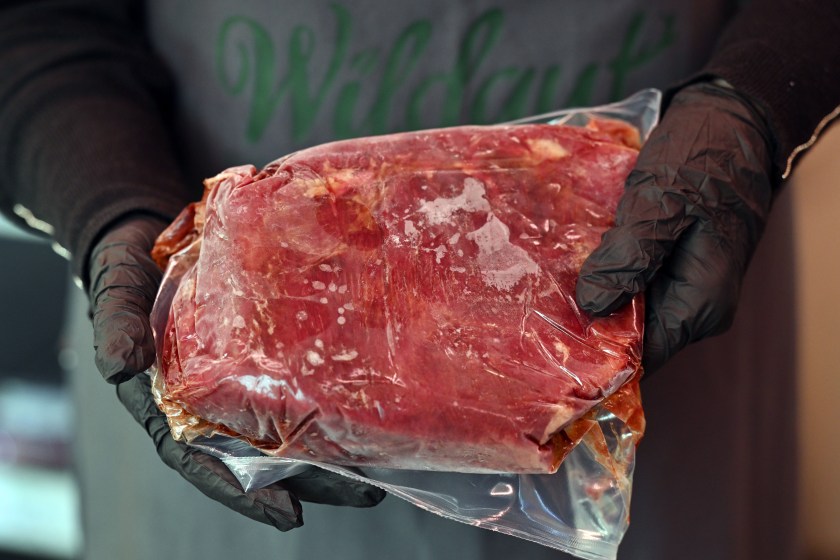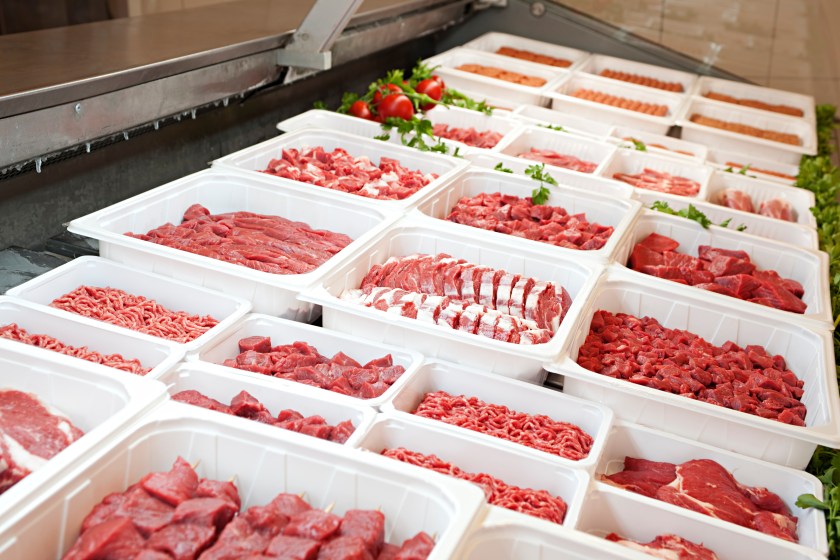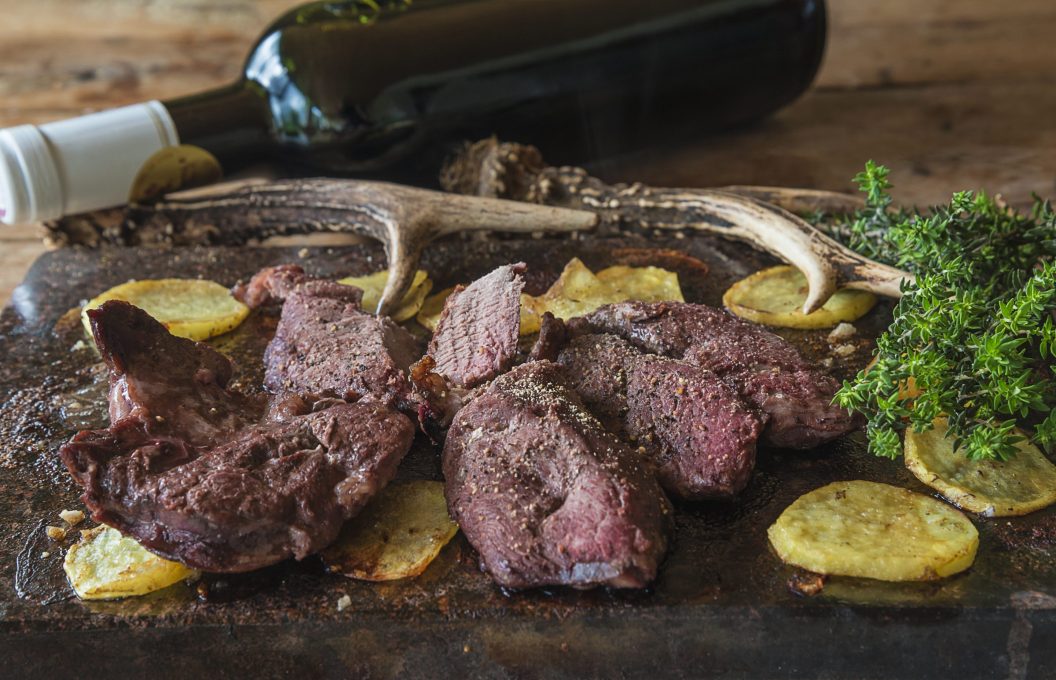Deer hunting season is around the corner, which means it's almost that time of year when hunting enthusiasts start filling their freezers and breaking out our favorite venison recipes. From venison jerky to venison backstrap, there are so many different ways to eat deer meat—and each of them is tastier than the last.
But is deer meat healthy to eat? As hunters, we want to make sure we're taking care of our bodies the best we can and so we're able to start every hunting season healthy and in shape.
Fortunately, beyond being downright delicious, venison is a fantastic source of lean, high-quality protein and is the perfect addition to a healthy diet. Add in the physical labor you put into bagging your deer and the time you get to spend in the great outdoors, and deer hunting and eating your harvest may be one of the healthier things you can do for yourself.
Deer Meat Health Benefits

Getty
Eating venison is a healthier option than eating red meat, such as beef or pork, because deer meat is leaner, has less saturated fat and cholesterol, and has fewer calories. According to WebMD, a 3-ounce cut of deer meat has 134 calories, 26 grams of protein, and 3 grams of fat. The same amount of beef has 259 calories, 22 grams of protein, and 18 grams of fat; and a 3-ounce cut of pork has 214 calories, 23 grams of protein, and 13 grams of fat. Because of its leanness, dear meat is the perfect type of meat for people who may be at risk of heart disease, or need to monitor their saturated fat and cholesterol intake.
Venison meat is also high in nutritional value because it's packed with essential amino acids and vitamins like iron, zinc, niacin, and more. Since it's wild game meat, it's also free of all of the antibiotics and hormones that are found in most commercially sold meat. These synthetic chemicals force the animal to grow bigger and faster, but they aren't exactly healthy. Growth hormones have been linked to a variety of cancers in humans, and they are actually banned in much of Europe, Canada, Japan, Australia, and New Zealand.
Buying organic meat that's free of any added chemicals, such as grass-fed beef, at the supermarket can be incredibly expensive. Deer meat, because it is a game animal, is completely free of these harmful chemicals. And hunting can be a much more economical way to get healthy meat.
Risks of Eating Venison

picture alliance, Getty Images
While venison is very healthy to eat, there are certain risks with any game meat. Most of these risks come from improper handling and cooking of raw meat. Freeze your deer meat properly, at or below zero degrees Fahrenheit. And when you cook venison, make sure it reaches an internal temperature of 165 F. Improper care of your meat can lead to infectious diseases and gastrointestinal problems.
Deer populations can also carry infectious diseases, such as brucellosis and chronic wasting disease. As a hunter, you are more at risk of coming in contact with these diseases because you are handling the deer's organs and are in contact with its blood. If an infected deer's blood or tissue comes in contact with your blood, eyes, nose, or mouth, it could spread the disease to you. When hunting, make sure you choose your animal carefully and pass on any deer that doesn't look healthy. Take proper care when field dressing and processing the animal to keep the work space clean, and be sure to wear gloves.
Is Venison the Healthiest Meat To Eat?

Getty Images
It is difficult to crown one meat as "the healthiest," because so much has to do with what the meat is served in and the cut of meat. However, as previously explained, deer meat is certainly healthier than other red meats like beef and pork. It is also healthier than a lot of commercially sold, non-organic meat because it doesn't have any added chemicals. Some people might wonder: Is deer meat healthier than chicken? It's a tough call, because deer meat and chicken both have their benefits. Venison is higher in vitamins and minerals—such as phosphorus, riboflavin, and B vitamins—than chicken, but chicken has slightly less fat. However, chicken is also liable to have synthetic chemicals and growth hormones.




